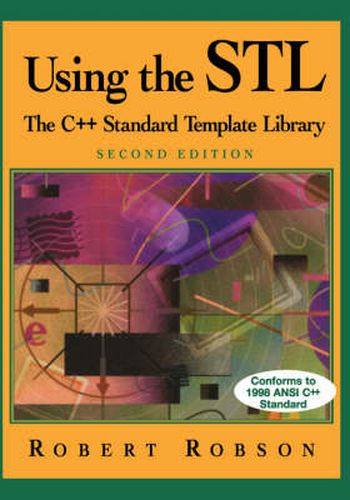Readings Newsletter
Become a Readings Member to make your shopping experience even easier.
Sign in or sign up for free!
You’re not far away from qualifying for FREE standard shipping within Australia
You’ve qualified for FREE standard shipping within Australia
The cart is loading…






This title is printed to order. This book may have been self-published. If so, we cannot guarantee the quality of the content. In the main most books will have gone through the editing process however some may not. We therefore suggest that you be aware of this before ordering this book. If in doubt check either the author or publisher’s details as we are unable to accept any returns unless they are faulty. Please contact us if you have any questions.
The standard template library for C++ (the STL) is an important addition to C++ and is rapidly becoming required knowledge for all C++ programmers. It provides a collection of generic data structures and algorithms written in C++ and has been adopted by the ANSI committee for the standardization of C++. The STL is increasingly becoming an extension to the language that will be supported by most if not all C++ compilers. The principal strengths of the STL are that: * the STL generalizes the concept of iterator * the STL algorithms can be used on regular arrays, thus increasing the applicability of the algorithms * The STL pays particular attention to the efficiency of the algorithms used. This book provides a comprehensive introduction and guide to the STL pitched at the level of readers already familiar with C++. It presents a thorough overview of the capabilities of the STL, detailed discussions of the use of containers, descriptions of the algorithms and how they may be used, and how the STL may be extended. An appendix provides an alphabetical reference to the entire STL. As a result, programmers of C++ and students coming to the STL for the first time will find this an extremely useful hands-on text. About the author: Dr. Robson has been involved in the computer industry and academics for the past seventeen years. He holds a Ph. D. from McGill University in Software Engineering, spent a decade in academics, and currently works in the industry.
$9.00 standard shipping within Australia
FREE standard shipping within Australia for orders over $100.00
Express & International shipping calculated at checkout
This title is printed to order. This book may have been self-published. If so, we cannot guarantee the quality of the content. In the main most books will have gone through the editing process however some may not. We therefore suggest that you be aware of this before ordering this book. If in doubt check either the author or publisher’s details as we are unable to accept any returns unless they are faulty. Please contact us if you have any questions.
The standard template library for C++ (the STL) is an important addition to C++ and is rapidly becoming required knowledge for all C++ programmers. It provides a collection of generic data structures and algorithms written in C++ and has been adopted by the ANSI committee for the standardization of C++. The STL is increasingly becoming an extension to the language that will be supported by most if not all C++ compilers. The principal strengths of the STL are that: * the STL generalizes the concept of iterator * the STL algorithms can be used on regular arrays, thus increasing the applicability of the algorithms * The STL pays particular attention to the efficiency of the algorithms used. This book provides a comprehensive introduction and guide to the STL pitched at the level of readers already familiar with C++. It presents a thorough overview of the capabilities of the STL, detailed discussions of the use of containers, descriptions of the algorithms and how they may be used, and how the STL may be extended. An appendix provides an alphabetical reference to the entire STL. As a result, programmers of C++ and students coming to the STL for the first time will find this an extremely useful hands-on text. About the author: Dr. Robson has been involved in the computer industry and academics for the past seventeen years. He holds a Ph. D. from McGill University in Software Engineering, spent a decade in academics, and currently works in the industry.